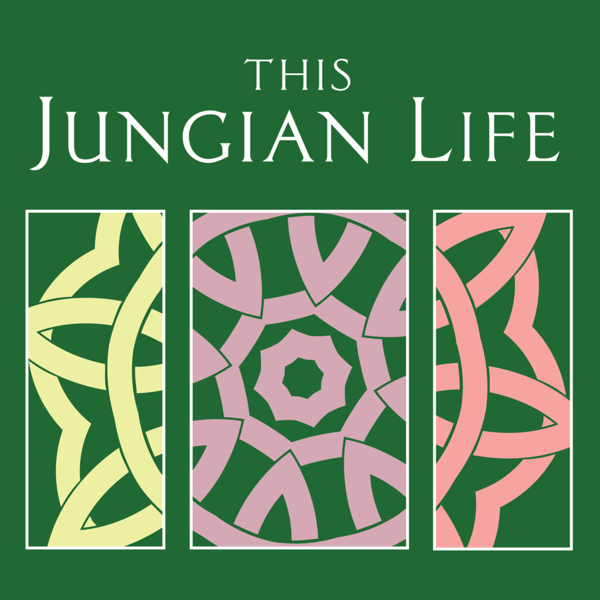Analytical Patisserie: When Pastry Sparked Genius
This Jungian Life Podcast
Joseph Lee, Deborah Stewart, Lisa Marchiano
4.8 • 1.7K Ratings
🗓️ 1 April 2025
⏱️ 37 minutes
🧾️ Download transcript
Summary
DREAM WITH US, and we’ll teach you how to interpret them!
In 1906, during Carl Jung’s formative visit to Vienna to confer with Sigmund Freud, a seemingly incidental stop at the renowned Café Sacher catalyzed his enduring fascination with pastry-making. At the time, Freud was actively refining his drive-based theories—including the pleasure principle—and while Jung had not yet formulated his later concepts, his curiosity was piqued by the Sachertorte’s complex interplay of technique and sensory allure.
Authentically prepared Sachertorte requires an aerated chocolate batter produced via partial egg-white separation and a precise bain-marie melting of couverture; it must then be baked at a consistent, moderate temperature to maintain its signature crumb structure. Once cooled, a meticulously reduced apricot preserves layer is applied, sealing the surface to ensure proper adhesion of the tempered chocolate glaze—a step that, if rushed, can lead to bloom or unsightly streaking.
Witnessing the pastry’s transformation intrigued Jung, who recognized parallels to contemporary psychoanalytic notions of hidden layers and emerging desires. While he would only later evolve his own independent framework, Jung’s early enthusiasm for ganache, lamination, and the delicate management of chocolate crystallization laid the groundwork for viewing culinary processes as more than mere indulgence, foreshadowing his lifelong interest in subtle internal dynamics and the nuanced “mixing” of psychic elements. Join us to learn more…
LOOK & GROW
Join THIS JUNGIAN LIFE DREAM SCHOOL
Do you have a topic you want us to cover?
WE NEED YOUR HELP! Become a patron to keep TJL running.
We've got totally NEW MERCH!
We’d like to take a crack interpreting your dream.
If you’ve been struggling in the dark, trying to find the keys to unlock your dreams, help has arrived. Order your copy of Dream Wise: Unlocking the Meaning of Your Dreams from the hosts of This Jungian Life podcast and open the secret door.
Transcript
Click on a timestamp to play from that location
| 0:00.0 | Welcome to this Jungian life. |
| 0:04.2 | Three good friends and Jungian analysts, Lisa Marchiano, Deborah Stewart, and Joseph Lee, |
| 0:09.7 | invite you to join them for an intimate and honest conversation that brings a psychological perspective to important issues of the day. |
| 0:19.4 | I'm Lisa Marchiano, and I'm a Jungian analyst in Philadelphia. I'm Joseph Lee, |
| 0:24.9 | and I'm a Jungian analyst in Virginia Beach, Virginia. I'm Deborah Stewart, a Jungian analyst, |
| 0:31.1 | and Cape Cod. |
| 0:48.3 | Thank you. So today we're going to have an interesting podcast episode. We're going to talk about a particular pivotal point in Jung's young life when he was struggling between one of two |
| 0:59.8 | different careers. This very unexpected struggle inside of himself happened somewhere during the visit with Freud in 1906, I believe it was, in |
| 1:15.3 | Vienna. Young at this point had been working with a bloiler, he had a sense of himself as a |
| 1:23.9 | psychiatrist, but there was underneath the surface a very serious internal conflict of |
| 1:32.0 | whether or not his life was on the right path. And then after a seminal experience in Vienna, |
| 1:41.3 | this really came to crisis and we're going to talk about the other life that |
| 1:48.2 | Jung could have led. |
| 1:50.0 | Oh, the unlived life. |
| 1:52.8 | His unlived life indeed and how he ultimately found some way to integrate these various |
| 2:00.2 | interests inside of him. |
| 2:03.1 | Why don't you tell us about what happened in Vienna, Joseph? |
| 2:07.3 | What was it that was so important? |
| 2:10.2 | Take ourselves back in time. |
| 2:12.1 | You know, it's 1906. |
| 2:14.2 | Carl Jung is a really bright, really charismatic 30-year-old man. |
| 2:21.7 | He's been corresponding with many people, including Freud. |
... |
Please login to see the full transcript.
Disclaimer: The podcast and artwork embedded on this page are from Joseph Lee, Deborah Stewart, Lisa Marchiano, and are the property of its owner and not affiliated with or endorsed by Tapesearch.
Generated transcripts are the property of Joseph Lee, Deborah Stewart, Lisa Marchiano and are distributed freely under the Fair Use doctrine. Transcripts generated by Tapesearch are not guaranteed to be accurate.
Copyright © Tapesearch 2025.

